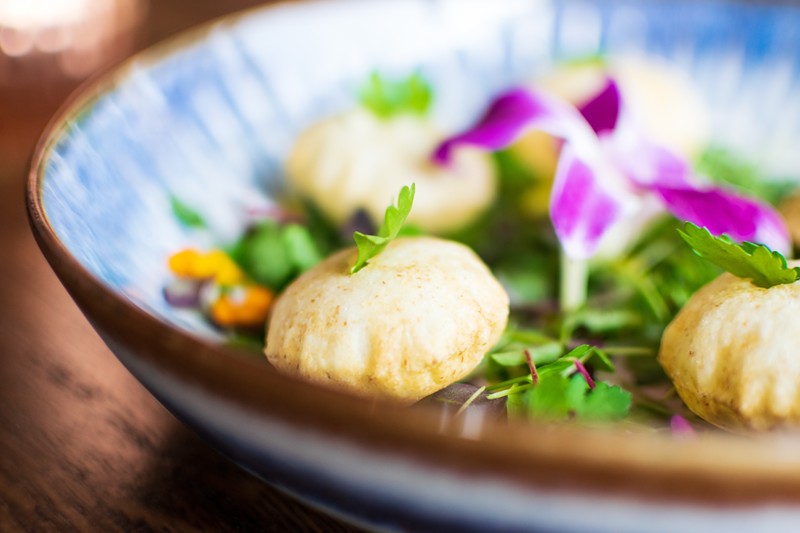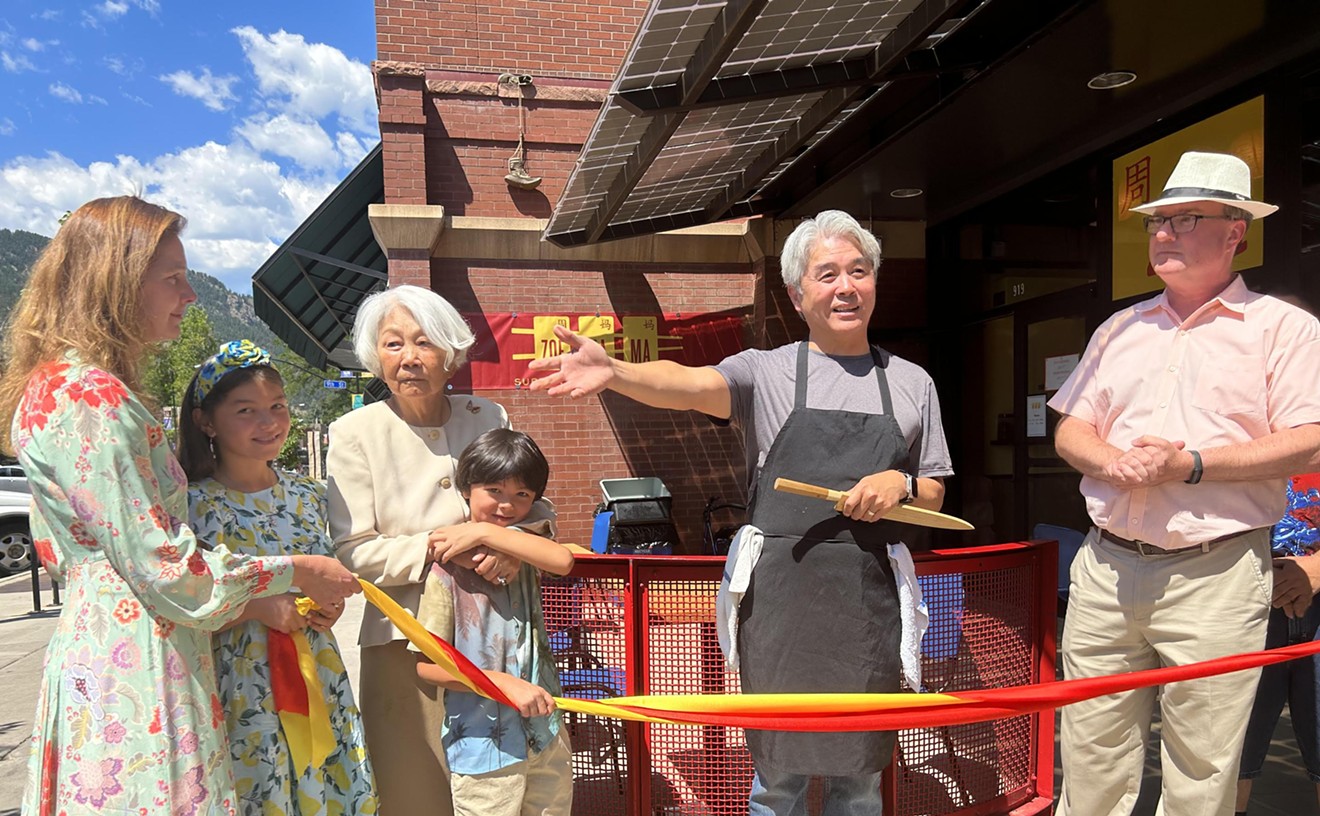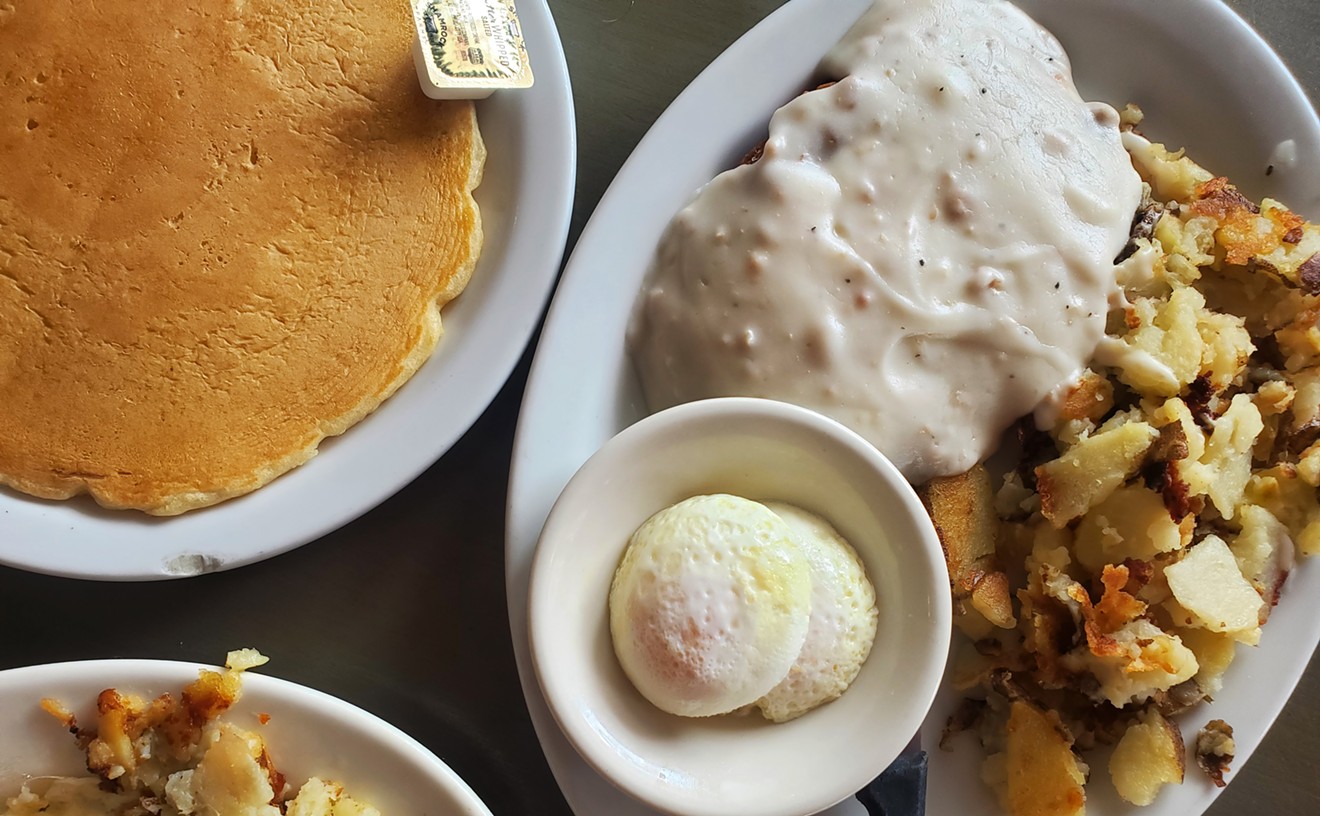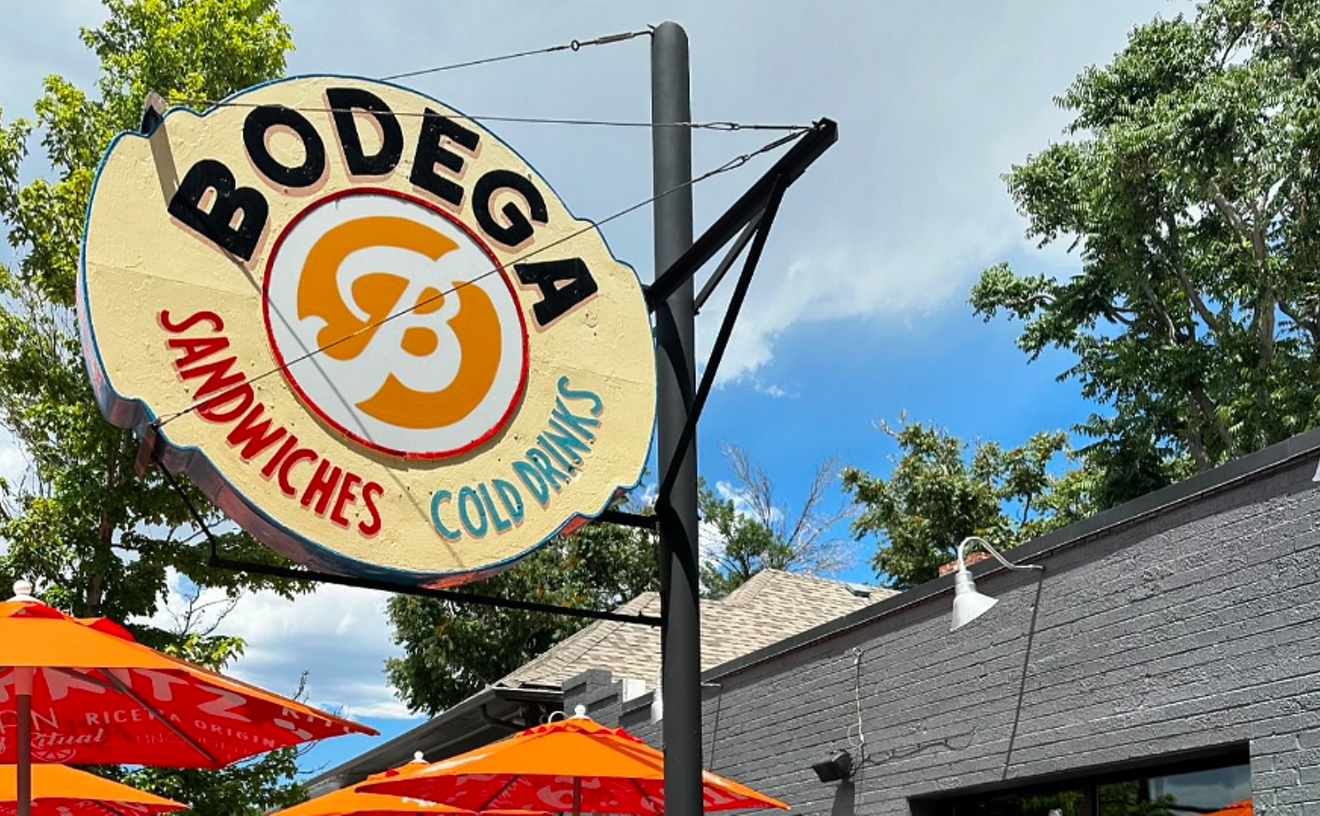The startling starter at Urban Village, the restaurant that Ramesh Madakasira opened in Lone Tree in September, comes in the form of a bite-sized pillow of pastry called a golgappa. A street-food favorite all over India (though with differing names and flavors), the golgappa is a hollow sphere of eggshell-thin fried dough filled with sauce. Chef Charles Mani uses semolina flour to create his crisp shells; the sauce within varies from season to season and was most recently a creamy combination of spicy, tangy and savory flavors. Tamarind, mint, chiles and cilantro are common ingredients in Indian food, and this golgappa seems to capture the best of all of those in a lively burst of flavor that sets the tone for the rest of the meal.
At Urban Village, which at one time housed the promising Khazana (specializing in South Indian cuisine), you can order golgappas as an appetizer, or you can have a golgappa as the first bite of the chef's tasting menu. For $39, the tasting menu guides you through Mani's greatest hits, with several plated appetizers and samples of five different entrees presented on a thali platter (a silver tray loaded with matching cups of stews, sauces and rice). It's the best introduction to what Mani is trying to convey in his cooking, especially since the restaurant doesn't rely on the standard Indian buffet as a crutch.
Madakasira and Mani both hail from South India — the owner from Anantapur (near Hyderabad) and the chef from Chennai — so they share a common vision when it comes to food. This is Madakasira's first restaurant; he hired Mani to create a menu that relies on the chef's personal vision as much as on traditional Indian dishes and ingredients. Mani says that he takes his inspiration from all over India but keeps the menu concise to highlight the best. He'd never cooked Indian food professionally until he moved to the United States; instead, he'd learned European technique while working in hotel restaurants in his home country.
Moving to this country was freeing, allowing Mani to create dishes combining time-honored recipes with ideas from contemporary culinary trends. He did time at two New York City restaurants, Babu Ji and Badshah, which both earned critical praise. The chef brought a few dishes with him when he moved to Colorado, along with his practice of coming out to the dining room to talk to customers, explaining to his fellow Indians why his butter chicken is "not your grandmother's," and helping non-Indian customers navigate some of the less familiar fare. "It's not a fight to educate diners, though," he says. "I don't have time for a battle. I have food to cook."
On the tasting menu, the golgappa is followed by a colorful bowl bearing kale moong dal chaat, a salad for people who don't like salads. Finely chopped kale, herbs and sprouted mung beans are loosely bound together by a light, crisp coating; these fried clusters are dressed with diced tomato and onion and a yogurt-based sauce. The result is refreshing and delightful; there's nothing to suggest that any part of the dish has been fried in oil except the crunch of the airy batter, which weaves its way among the veggies in strands and webs.
Next up is the Urban Cauliflower, a crunchy take on gobi Manchurian from the canon of Indian Chinese dishes that have evolved over the past century or so. The bright-orange sauce clinging to the batter-fried florets has a hint of familiar Chinese sweet-and-sour sauce, only interwoven with mysterious Indian spices.
Mani suggests eating clockwise from left to right when your thali platter arrives, because the various cups of stews and sauces have been arranged to complement one another in order. Rich, comforting butter chicken comes first, then a zingy lamb Chettinadu. While not too aggressive, the lamb's reddish-brown sauce packs enough punch that the sweet coconut curry that follows is a welcome soother, coating your choice of fish or butternut squash. The heat ramps up again with dal makhani (lentils and beans that the chef stews for 24 hours over a clay oven) and aloo gobi, a traditional dish of potatoes and cauliflower that gets topped with roasted asparagus, something Mani says you'd never see in India. The platter is augmented with a generous amount of naan bread, paper-thin papad (chickpea-flour flatbread), basmati rice and raita.

The thali platter that comes with with the Urban Village chef's tasting menu.
Courtesy of Urban Village
The food at Urban Village feels alive and vital, demanding your attention with each bite and invigorating you in a way that dull and lifeless buffet food never does. "In India, we eat food as medicine," Mani explains.
And at the Urban Village, this chef has the prescription to cure any Denver diner's malaise.
Urban Village is located at 9234 Park Meadows Drive, #700, and is open Tuesday through Sunday, with lunch served from 11 a.m. to 2:30 p.m. and dinner from 5 to 9:30 p.m. (10 p.m. on Fridays and Saturdays). Call 720-536-8150 or visit urbanvillagerestaurant.com for details.













